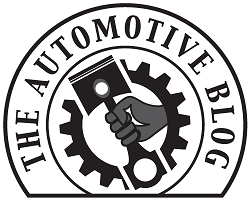|
Listen to the article
|
The Ministry of Road Transport and Highways, Government of India, mandated that all new two-wheelers launched after April 1, 2018, will be equipped with ABS or CBS. However, from April 1, 2019, this came into effect for the entire two-wheeler industry. Now, all two-wheelers below 125cc engine capacity get CBS while that above 125cc is equipped with ABS. So, what are the differences between CBS vs ABS? That’s what we will be explaining here!
CBS vs ABS: Differences Explained
What is CBS?
CBS stands for Combined Braking System. It was first developed by Honda Two-wheelers. But now, it is used by all two-wheeler makers. The most effective way of braking is applying both the front and rear brakes simultaneously and that’s what CBS does. It applies some percentage of front brakes even when only the rear brake lever has been pulled, thereby improving the overall braking performance.
What is ABS?
ABS stands for Anti-lock Braking System. It is a more advanced technology than CBS and so is found on two-wheelers above 125cc in India. What ABS does is that it doesn’t let the wheels lock up even in harsh braking scenarios, thereby avoiding unintentional slides on wet or slippery surfaces and improving the overall safety net. There are two types of ABS available for two-wheelers, namely single-channel and dual-channel versions.
CBS vs ABS: Which one is safer?
Finally, the main question arises, CBS vs ABS, which one is better in real-life scenarios? So, ABS or Anti-lock Braking System is hands down much better than CBS and so it is more expensive too. While CBS only helps in effective braking by applying both the brakes, ABS is much safer as it prevents the wheel from locking up in harsh braking scenarios. The Indian government took the right step towards improving road safety by mandating ABS and CBS for two-wheelers.
Also Read: 2022 Kia Carens First Look – The best of both worlds!
What are your thoughts on the differences between CBS vs ABS and which system will be your pick? Do let us know in the comments section below. Also, you can connect with us on our social media platforms, The Unbiased Blog, The Automotive Blog, and Nikhil Chawla, for all things tech and auto!

[…] Braking System) and CBS (Combined Braking System). You can read that article by clicking, HERE. Now, in case you are out in the market to purchase a new two-wheeler, you must have heard terms […]